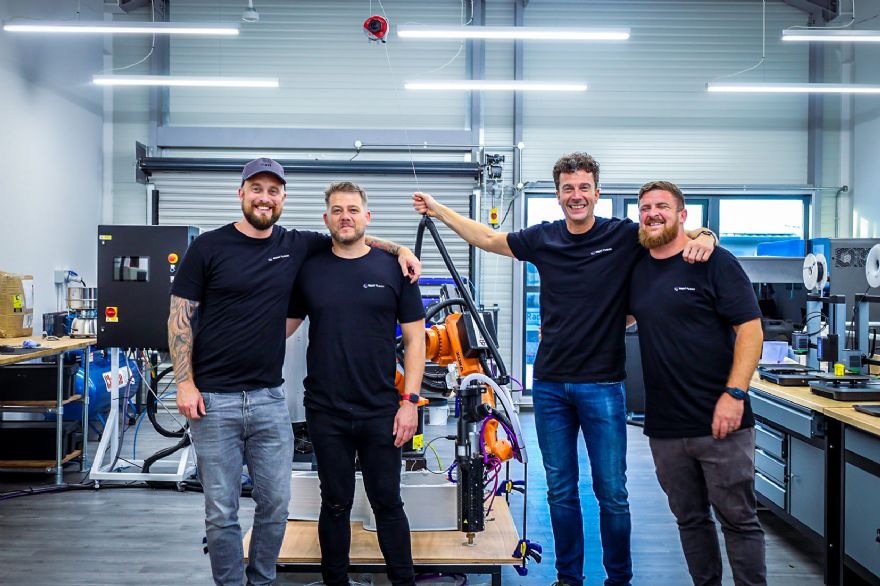
A South West-based engineering team with a passion for innovation is transforming the large-format additive manufacturing (AM) sector with the launch of its latest product.
Rapid Fusion has invested more than £500,000 into bringing ‘Apollo’ to market, a full turnkey 3-D printing solution that harnesses the power of robotics to support the production of large components and moulds.
Founder Jake Hand believes this new technology will help automotive, aerospace and furniture manufacturers achieve high quality builds at rapid speeds, all achieved at a fraction of the cost of other models. He says that more than £4 million worth of sales are realistic in the first year and seven new jobs have already been created, not to mention the fit-out of a purpose-built R&D and demonstration centre in Skypark, Exeter.
He continued: “I have been involved in the sector for some time and companies were continually asking for a product that offered them an automated large-format solution. Nobody was doing anything like this in the UK, so we thought…you know what, let us see what we can do, and our Apollo system represents a massive innovation that promises to disrupt the status quo.”
“It utilises a world-class, award-winning pellet extruder, tailored control system and robotic Kuka arm that extends to nearly 4 metres. It means users can design and produce products on a print bed that is 2m x 3m
2, ideal for creating bespoke furniture pieces, large automotive parts and complex aerospace components.”
Rapid Fusion, a sister business of 3-D printing hardware specialist EVO 3D, is committed to becoming a major player in the AM platforms arena - all designed, built and assembled in the UK. Apollo, which retails at £250,000, is the first bespoke cell the company is bringing to market and offers faster speeds than FDM printers (nearly 200-times quicker), as well as the ability to use hundreds of different engineering-grades polymers while achieving custom composites. Customers also have the potential to secure significant cost savings as pellets can cost 65% to 90% less than filament of the same plastic.
Mr Hand concluded: “Our Apollo systems are generating a lot of interest, and we have already agreed reseller agreements with international clients, such as CNC World in the UK, Hyperion in Australia, Maptec in Dubai and ACCUFACTURE in the USA. There are also a lot of domestic opportunities, and this is just the start. Our R&D team are already working on the next generation of systems, which have the potential to push innovation even further. This will include the possibility of integrating CNC machining into our solutions and an exciting Innovate UK-backed project that will herald the launch of Evo 1.”
Rapid Fusion will be opening its Skypark facility in October and, if the pipeline of orders is realised, then it will look to create a further seven positions in the South West over the next 12 months.